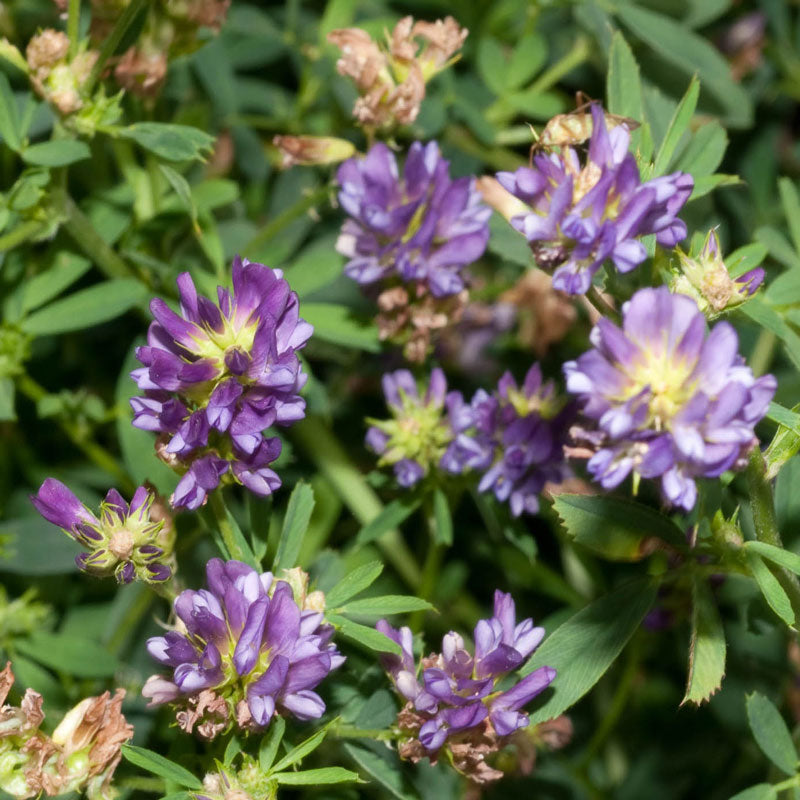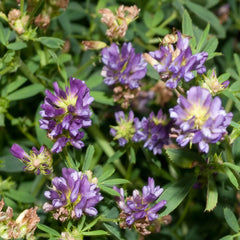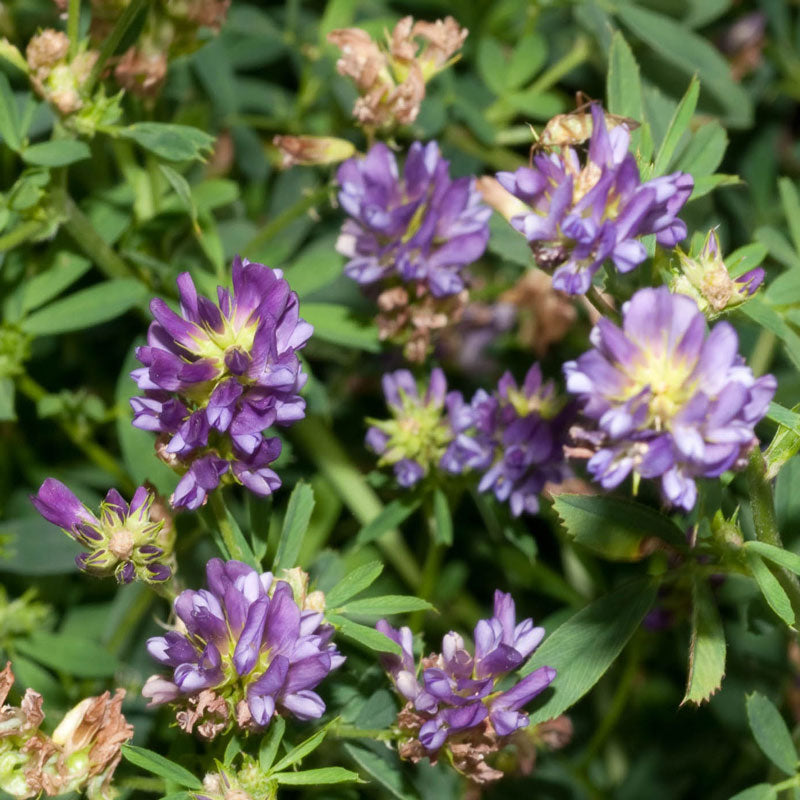

Alfalfa (Medicago sativa)
- $14.00 CAD
- $14.00 CAD
- Unit price
- per
50g, 100g, 250g
Couldn't load pickup availability
Parts used: Leaves and flowers
Properties
Alterative, antibacterial, antifungal, antirheumatic, bitter, blood purifier, deodorant, diuretic (mild), nutritive
Primary nutrients
Essential amino acids, chlorine, chlorophyll, iron, magnesium, phosphorus, potassium, silicon, sodium, vitamins A, B1, B2, B12, E, D and K.
In ancient times, alfalfa was considered a miracle herb. The Arabs called it the “Father of Herbs”. It has the ability to survive in harsh climates and the roots of the plant can reach as far as sixty-six feet into the subsoil.
Modern research has documented the health benefits of alfalfa. It is one of the most nutritious foods available. It is considered by herbalists to be beneficial for many problems and some even recommend it for any ailment because it helps the body assimilate protein, calcium and other essential nutrients. In addition, alfalfa is used to remove poisons and their effects in the body and is thought to neutralize the acidity of the body and break down carbon dioxide. In fact, alfalfa is often used to treat recuperative cases of narcotic and alcohol addiction and has been found to help build the blood in cases of anemia.
Alfalfa contains antibacterial and antifungal properties that make it a great body cleanser, infection fighter and natural deodorizer. It has also been used to clean stained teeth. The extracts produce antibacterial activity against gram-positive bacteria specifically.
Alfalfa is known to help with milk production in nursing mothers and to stimulate appetite. It has also been researched and found to help lower cholesterol levels and to neutralize cancer. It has been found to help in healing ulcers and treating arteriosclerosis, pituitary problems, liver toxicity, arthritis, allergies, diabetes and in strengthening the capillaries and blood vessels. Alfalfa is often used to treat appendicitis, water retention, urinary and bowel problems, muscle spasms, cramps and digestive problems.
Primary Applications
Anemia
Appetite, loss
Arthritis
Blood, impurities
Diabetes
Hemorrhages
Kidney, contaminated
Nausea
Pituitary problems
Ulcers, peptic
Secondary Applications
Alcoholism
Appendicitis, chronic
Allergies
Blood pressure, high
Body odor
Bursitis
Cancer
Cholesterol, high
Cramps, muscle & stomach
Gastric disorders
Gout
Intestinal problems
Jaundice
Lactation, absent
Muscles, weak
Nosebleeds
Teeth, stained
Urinary problems
50g, 100g, 250g
RELATED PRODUCTS
- Choosing a selection results in a full page refresh.


